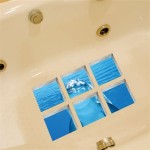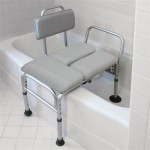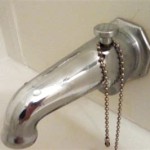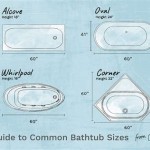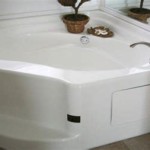Types of Bathtub Materials: A Comprehensive Guide
Choosing the right bathtub material for your bathroom is crucial as it impacts both aesthetics and functionality. With various materials available, deciding can be overwhelming. This guide explores the essential types of bathtub materials, highlighting their key characteristics and benefits to help you make an informed choice.
1. Acrylic
Acrylic is a durable, lightweight material resistant to scratches and stains. It offers a glossy finish and is available in a wide range of colors and styles. Acrylic bathtubs are easy to install and maintain, making them a popular choice.
2. Fiberglass
Fiberglass is another lightweight option known for its durability and affordability. It can be molded into various shapes, providing greater design flexibility. Fiberglass bathtubs have a non-porous surface, making them hygienic and easy to clean.
3. Cast Iron
Cast iron bathtubs are highly durable and retain heat exceptionally well, keeping water warm for longer. They offer a classic and elegant look and are often used in traditional or vintage-style bathrooms. Cast iron bathtubs are heavy and require professional installation.
4. Porcelain-Enameled Steel
Porcelain-enameled steel bathtubs combine the strength of steel with the non-porous, hygienic surface of porcelain enamel. They are resistant to chipping and fading, making them easy to maintain. Porcelain-enameled steel bathtubs offer a sleek and modern look.
5. Natural Stone
Natural stone, such as marble or granite, creates a luxurious and unique bathing experience. Each bathtub is one-of-a-kind, with its own natural variations in color and texture. Natural stone bathtubs are durable but require proper sealing and maintenance to prevent staining and damage.
6. Composite
Composite bathtubs are made from a combination of materials, such as fiberglass and acrylic or stone resin. They offer a balance of durability, style, and affordability. Composite bathtubs are available in various designs and finishes, providing greater customization options.
7. Copper
Copper bathtubs are handcrafted and offer a distinctive, rustic look. Copper is a naturally antibacterial material and will develop a beautiful patina over time, enhancing its aesthetic appeal. Copper bathtubs require regular maintenance to prevent tarnishing.
Conclusion
Choosing the right bathtub material depends on individual preferences, bathroom style, and budget. Consider factors such as durability, heat retention, ease of installation, maintenance, and aesthetics. By understanding the different options available, you can make an informed decision that will provide years of blissful bathing experiences.
How To Choose The Best Bathtub Material A Comparison Guide Vevano

4 Common Bathtub Materials Pros Cons What To Buy For Your Bathroom

Common Bathtub Materials Pros And Cons 2024 Badeloft

Common Bathtub Materials Pros And Cons 2024 Badeloft

Common Types Of Bathtub Materials Pros And Cons

Common Bathtub Materials Pros And Cons 2024 Badeloft

Types Of Bathtub Materials W Atelier Malaysia

How To Choose The Right Bath Panel Luna Spas

What Is The Best Material For A Freestanding Bathtub Luxury Tubs

Diffe Types Of Soaking Tub Tubs 101

